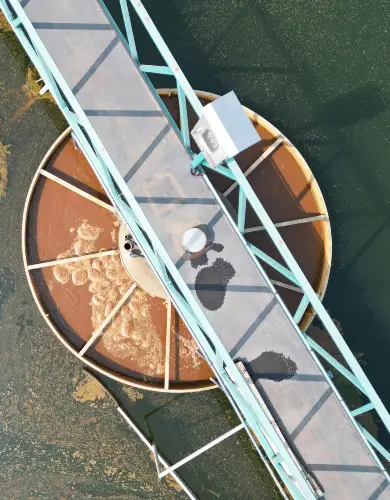COVID-19 and your Business Water Supply
Britain’s last COVID-19 lockdown ended in 2021, and since then, the world has largely returned to normal. During the crisis, our business water experts consistently updated this page to provide business owners with the best advice for managing their water supplies.
This page received its final update in June 2024 to summarise the unprecedented effects of COVID-19 on the water industry for businesses and the steps taken by regulators and businesses.
Water stagnation health risks
Commercial properties across Britain were closed for extended periods during the national lockdowns. This resulted in water within the plumbing systems of commercial buildings becoming stagnant, creating a legionella risk.
Drinking water held at room temperature for too long can start to harbour bacteria and absorb metals from plumbing, posing a health risk when buildings are reopened. A recent paper published by the American Chemical Society highlights a resurgence of legionella post-COVID-19.
The water trade association, Water UK, has published an in-depth article outlining the steps your business can take to resume water usage safely.
For the latest guidance on reducing health risks associated with water pipes, please visit our two key pages:
Temporary vacancy scheme
During the first lockdown in March 2020, Ofwat introduced a temporary vacancy scheme. If a business site was closed between 16 March 2020 and 31 July 2020, it was considered temporarily closed for water charge purposes.
Under this temporary closure status, your business water supplier did not levy any charges throughout the closure period and refrained from pursuing any outstanding business water bills that a business owed before the closure.
This temporary vacancy scheme was instrumental in reducing business water rates for small businesses compelled to close due to COVID-19.
Reduction in business water consumption
Britain’s overall water footprint did not change significantly during the pandemic; however, there was a noticeable shift from commercial to residential water usage as more people began working from home.
A study by Artesia revealed that sectors such as hotels and restaurants experienced a 70% reduction in water use during the national lockdowns.
Unlike households, most commercial properties in the UK are equipped with water meters, enabling businesses to benefit from this reduced water consumption.
We recommended that businesses conduct regular meter readings during the crisis, ensuring that reduced water consumption could translate into lower bills as soon as possible.
Business water suppliers typically take meter readings once every six months; therefore, lower consumption during 2020 and 2021 will now have resulted in lower water bills.
Increased bad debt costs for water suppliers
The pandemic had an enormous impact on the UK economy, affecting the finances of both businesses and households. This resulted in a significant increase in unpaid water bills, burdening water suppliers and increasing the risk of business water suppliers going bust.
Meanwhile, the cost of operations in the British water industry has risen due to escalating business electricity prices and the need to enhance infrastructure to reduce sewage pollution in rivers.
Consequently, regulators have permitted substantial increases in water rates to cover these rising costs.
Business water rate increases in 2023 and 2024 have been significantly above the rate of inflation.

